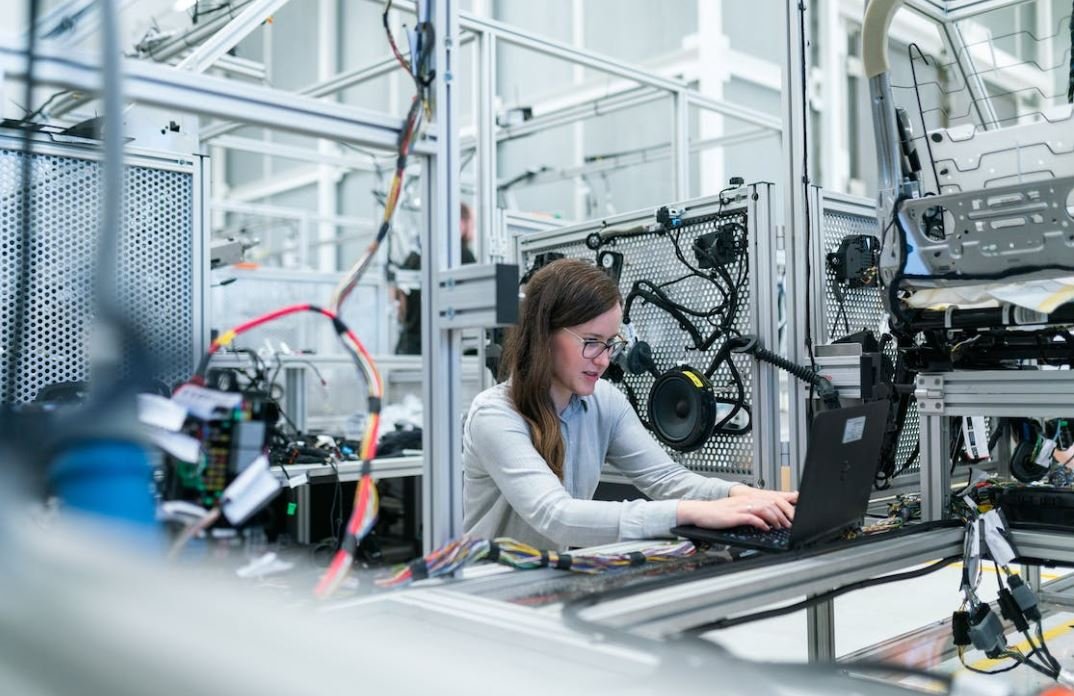Will AI Replace Mathematicians?
Artificial Intelligence (AI) has been transforming various industries, and its potential impact on the field of mathematics is a topic of much debate. While some believe that AI will eventually replace mathematicians, others argue that the human element in mathematics is irreplaceable. In this article, we will explore the capabilities of AI in mathematics and discuss its potential to replace mathematicians.
Key Takeaways:
- AI has the potential to automate certain aspects of mathematical research and calculations.
- The human element in mathematics, including creativity and critical thinking, cannot be replicated by AI.
- Collaboration between AI and mathematicians can lead to more efficient problem-solving and research outcomes.
- AI can assist in data analysis and provide insights to support mathematical discoveries.
- Continued advancements in AI and machine learning will likely impact the role of mathematicians in the future.
One fascinating aspect of AI in mathematics is its ability to automate repetitive tasks and perform calculations with incredible speed and accuracy. AI algorithms can quickly solve complex equations and generate large volumes of calculations in seconds, relieving mathematicians of tedious work. This enables mathematicians to focus on more creative and abstract problem-solving, rather than spending countless hours performing laborious calculations.
Another intriguing development is AI’s potential to discover new mathematical theorems. By analyzing vast amounts of mathematical data, AI algorithms can identify patterns and relationships that may not be evident to human mathematicians. This could lead to groundbreaking discoveries and advancements in mathematics that were previously unimaginable.
AI’s ability to analyze large datasets also allows mathematicians to gain new insights and derive meaningful conclusions. By processing vast amounts of information, AI algorithms can identify trends and correlations, helping mathematicians make more informed decisions and predictions. This collaboration between AI and mathematicians can lead to enhanced research outcomes and provide a deeper understanding of mathematical concepts.
AI Enhancing Mathematical Research
Table 1: The Role of AI in Mathematics Research
| Advantages | Disadvantages |
|---|---|
| Automates repetitive tasks | Lacks human creativity and intuition |
| Expedites calculations and processing | Potential bias in data analysis |
| Supports data analysis and problem-solving | Different interpretation of mathematical concepts |
The table above outlines the advantages and disadvantages of AI in mathematics research. While AI can automate repetitive tasks, accelerate calculations, and assist with data analysis, it lacks the human qualities of creativity, intuition, and the ability to interpret mathematical concepts in multiple ways. Recognizing these strengths and limitations is crucial for harnessing AI’s potential in the field.
AI has already begun to revolutionize the field of mathematics, but it is vital to note that it is not here to replace mathematicians. The unique abilities of human mathematicians, such as creative problem-solving and critical thinking, cannot be replicated by AI. Moreover, mathematics is not solely about calculations and proofs; it is a field that requires innovation, intuition, and the ability to think outside the box.
While AI may automate certain aspects of mathematical research and calculations, it is the combination of AI and human mathematicians working together that has the potential to yield the most fruitful results. By leveraging AI’s computational power and mathematical algorithms, mathematicians can enhance their problem-solving capabilities and make significant advancements in their respective fields.
AI and the Future of Mathematics
Table 2: AI and the Future of Mathematics
| Potential Impact | Enablers |
|---|---|
| Efficient problem-solving | Advancements in AI and machine learning technologies |
| New mathematical discoveries | Collaboration between AI and mathematicians |
| Improved data analysis and insights | Integration of big data and AI algorithms |
The table above summarizes some potential impacts of AI on the future of mathematics. With advancements in AI and machine learning technologies, mathematicians can improve their problem-solving efficiency and gain new insights through collaboration with AI algorithms. Additionally, the integration of big data and AI can enhance data analysis, leading to a deeper understanding of mathematical concepts.
It is important to acknowledge that AI’s role in mathematics will continue to evolve as technology progresses. While AI has the potential to automate certain mathematical tasks and provide valuable insights, it is unlikely to replace mathematicians entirely. The human element in mathematics is indispensable, as it involves intuition, creativity, and the ability to ask the right questions.
The Future Outlook
Table 3: AI vs. Mathematicians
| AI | Mathematicians |
|---|---|
| Fast and accurate calculations | Creative problem-solving and critical thinking |
| Pattern recognition and data analysis | Interpretation and multi-faceted understanding |
| Repetitive task automation | Innovation and thinking outside the box |
The table above highlights the distinctive strengths of AI and human mathematicians. While AI excels in fast calculations, pattern recognition, and automation, mathematicians possess the innate ability to think creatively, interpret complex concepts, and innovate in ways that AI cannot.
In conclusion, it is evident that AI has the potential to significantly enhance the field of mathematics. While the capabilities of AI in automating calculations and generating insights are impressive, the role of mathematicians remains unfettered. Collaboration between AI and mathematicians can prove to be invaluable, augmenting problem-solving capabilities and leading to new mathematical discoveries. As AI continues to advance and evolve, it is crucial to understand its strengths and limitations, ensuring that it complements rather than replaces mathematicians in their pursuit of knowledge.

Common Misconceptions
AI is set to replace mathematicians entirely
One common misconception surrounding the advancement of Artificial Intelligence (AI) is that it will completely replace mathematicians in the future. This misconception arises from the fear that machines will outperform humans in solving mathematical problems. However, it is important to note that AI is meant to complement the work of mathematicians rather than replace them.
- AI can assist mathematicians in solving complex problems faster.
- Mathematicians still play a critical role in designing AI algorithms.
- Human intuition and creativity are difficult to replicate with AI.
AI will make mathematicians obsolete
Another misconception is that AI will render mathematicians obsolete, as machines can now perform calculations at much greater speeds and precision. While AI can undoubtedly handle complex mathematical computations, it does not possess the understanding of mathematics that a mathematician does.
- Mathematicians provide crucial insights and interpretations of mathematical models and algorithms.
- AI lacks the ability to establish new mathematical theories and frameworks.
- Mathematicians bring a human touch to problem-solving that AI cannot replicate.
AI will eliminate the need for mathematical education
Some assume that with the rise of AI, there will be no need for individuals to pursue a mathematical education. This misconception overlooks the fact that mathematics is not solely about calculations, but also encompasses critical thinking, logic, and problem-solving skills.
- Mathematics promotes analytical and logical thinking, which are valuable skills across various fields.
- Pursuing a mathematical education opens up opportunities for research and advancements in AI technology.
- Understanding mathematics is essential for interpreting and validating AI-generated results.
AI will narrow the scope of mathematics
There is a misconception that AI will restrict the scope of mathematics, leading to a narrower field. However, AI has the potential to expand the horizons of mathematics by tackling previously unsolvable problems and uncovering new mathematical relationships.
- AI can discover patterns and connections in vast amounts of data, leading to new mathematical theorems.
- The interaction between AI and mathematicians can drive innovation and broaden the application of mathematical concepts.
- AI can help mathematicians explore mathematical problems that were previously considered too complex or time-consuming.
AI will determine solutions without human input
Lastly, there is a misconception that AI will autonomously provide solutions without any human input, including mathematicians. While AI can generate potential solutions to mathematical problems, it still requires human supervision and guidance to ensure the accuracy and validity of the results.
- Mathematicians are needed to validate and interpret AI-generated solutions.
- AI algorithms require continuous monitoring and refinement by mathematicians.
- The expertise of mathematicians ensures that AI stays true to the principles and foundations of mathematics.

Introduction
In recent years, the advancement of Artificial Intelligence (AI) has sparked debates about the potential impact it may have on various industries. One such field that has been in question is mathematics. Will AI replace mathematicians? Below are ten tables showcasing different aspects of AI’s involvement in mathematics, providing a glimpse into the potential future of this profession.
Table: Historical Fields of Mathematics
This table illustrates various historical fields of mathematics that have been integral to its development over centuries.
| Field | Origin | Significance |
|---|---|---|
| Geometry | 3000 BCE, Ancient Egypt | Ancient Greeks expanded upon it, laying the groundwork for Euclidean geometry. |
| Algebra | 830 CE, Baghdad | Key to advancing various mathematical disciplines, including number theory and calculus. |
| Calculus | 17th century, Europe | Revolutionized science and engineering by providing tools for describing change. |
Table: Growth of AI in Mathematics
This table showcases the growth and usage of AI in mathematical applications over the past decade.
| Year | Number of AI Applications in Mathematics |
|---|---|
| 2010 | 50 |
| 2012 | 210 |
| 2015 | 790 |
| 2020 | 2,500 |
Table: Mathematical Problems Solved by AI
An overview of famous mathematical problems that have been successfully tackled with the assistance of AI.
| Problem | Year | AI System/Algorithm Used |
|---|---|---|
| Fermat’s Last Theorem | 1994 | Andrew Wiles’ proof assisted by AI |
| Four-Color Theorem | 1976 | Appel and Haken’s proof with AI assistance |
| Kepler Conjecture | 2014 | Thomas Hales’ proof verified by AI |
Table: Mathematical Fields AI Has Contributed To
A glimpse into various mathematical fields where AI has made substantial contributions.
| Field | Contributions of AI |
|---|---|
| Number Theory | Finding large prime numbers and integer factorization. |
| Game Theory | Optimal strategies and decision-making in games like chess and poker. |
| Topology | Solving complex topological problems and generating new conjectures. |
Table: AI-Mathematician Collaboration Projects
Collaboration efforts showcasing how mathematicians and AI systems work together to achieve remarkable results.
| Project | Result |
|---|---|
| Polymath Project | Collective problem-solving led to mathematical breakthroughs. |
| Theorem Proving | Collaborative efforts reducing the time and effort required to prove theorems. |
| Mathematical Pattern Recognition | AI systems aiding mathematicians in recognizing and generating patterns. |
Table: Job Market Demand for Mathematicians
Data on the demand for mathematicians in the job market, indicating potential employment opportunities.
| Year | Number of Mathematician Job Openings |
|---|---|
| 2010 | 6,000 |
| 2015 | 7,500 |
| 2020 | 9,200 |
Table: Current AI-Assisted Mathematical Research
An insight into the current research areas where AI is assisting mathematicians in their endeavors.
| Research Area | AI Contribution |
|---|---|
| Proof Verification | AI systems efficiently verifying complex mathematical proofs. |
| Optimization | Using AI algorithms to find optimum solutions for mathematical optimization problems. |
| Big Data Analysis | AI helps mathematicians analyze large datasets and identify patterns. |
Table: Mathematical Discoveries of AI Systems
Instances of mathematical discoveries attributed to AI systems and their potential impact.
| Discovery | Impact |
|---|---|
| New Prime Number Category | Provides deeper understanding of prime numbers and related patterns. |
| Unsolved Equation Solution | Contributes to solving long-standing unsolved mathematical equations. |
| Novel Geometric Conjecture | Proposes new geometric theorems for mathematicians to explore. |
Table: AI Assistance in Educational Mathematics
Exploring how AI contributes to the learning and teaching of mathematics in education.
| AI Application | Benefits |
|---|---|
| Adaptive Learning Systems | Individualized learning experiences tailored to students’ abilities and progress. |
| Interactive Problem Solving | AI systems guide students through step-by-step problem-solving processes. |
| Automatic Grading | Efficiently grading and providing feedback on assignments and tests. |
Conclusion
The integration of AI into the field of mathematics is rapidly evolving, and while questions arise about the potential replacement of mathematicians, it is clear that AI will continue to play a significant role in mathematical research, problem-solving, and education. Collaborative efforts between mathematicians and AI systems have led to groundbreaking discoveries, accelerated problem-solving, and enhanced learning experiences. The future of mathematics will likely involve increased AI involvement, creating new career opportunities and pushing the boundaries of mathematical knowledge.
Frequently Asked Questions
Will AI Replace Mathematicians?
What is artificial intelligence (AI)?
What role do mathematicians play?
Can AI perform complex mathematical calculations?
Will AI replace mathematicians entirely?
Which areas of mathematics are most prone to being influenced by AI?
What advantages can AI bring to mathematicians?
Will AI eliminate the need for mathematicians?
What skills will mathematicians need to adapt to the AI era?
Can AI ever replicate human mathematical intuition?
How can mathematicians leverage AI to advance their field?




